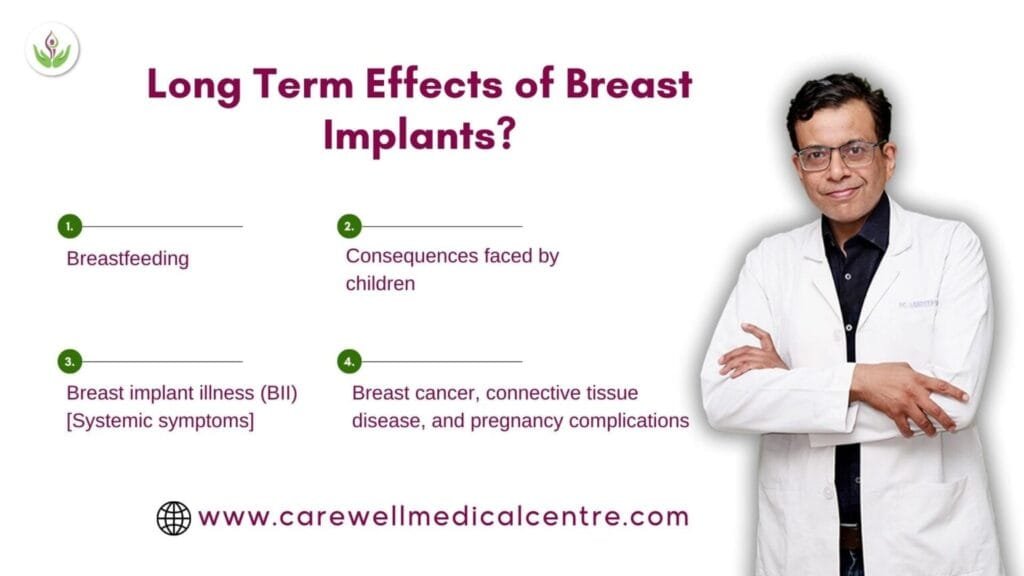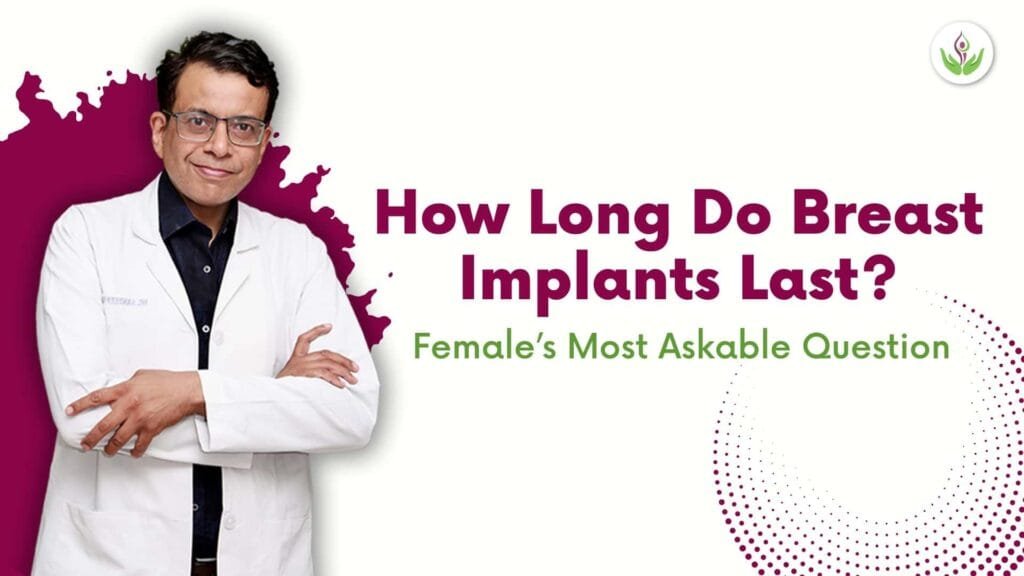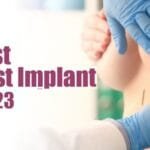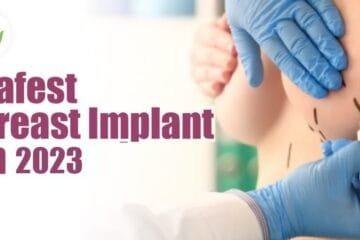What’s the difference between breast implants, breast augmentation & lifts?
Have you been dreaming of having fuller and rounder breasts but left the thought behind due to confusing terminologies? You do not have to worry anymore. If we try to put it into simple words, breast augmentation is the transference of fat from one body part to the other. A breast implant is the labeling of the fat that has been transferred to the breast.
Breast augmentation can be referred to with different terminologies for example ‘boob job’, ‘augmentation mammoplasty’, or ‘boob aug’.
Result of breast augmentation surgery:
- Boost your breasts’ shape and volume
- Enhance harmony between the breast and hip contours.
- Improve your self-esteem and confidence.
What are the long-term effects of breast implants?

The long-term effects of breast implants include:
- Breast cancer, connective tissue disease, and pregnancy complications: The FDA has not yet approved any relevant relationship between breast implants and Breast cancer, connective tissue disease, or pregnancy complications. Although certain patients have reported systemic symptoms after breast implant surgery. To completely understand these occurring symptoms broader studies need to be conducted.
- Breast implant illness (BII) [Systemic symptoms]: Breast augmentation may cause effects such as headaches, poor memory, rashes, “light-headedness,” and muscle aches. These signs may be also referred to as “breast implant sickness” (BII). It is unclear what causes these symptoms and how they manifest. It has been claimed that removing breast implants without replacing them can sometimes help breast implant sickness symptoms disappear.
- Breastfeeding: After going through a breast-related cosmetic surgery procedure some women are capable of breastfeeding whereas some lose it. It is difficult for women with mastectomies followed by a reconstruction breast enhancement to breastfeed since they lose the glands and the tissues responsible for breast milk production.
- Consequences faced by children: Since there is no potent method to check the levels of silicone in breast milk it is hard to comment on how the procedure affects children. In two studies it was observed that boob jobs had no negative effect on children whereas a third study suggested low birth weight as a serious concern.
Read Too: How Painful Is Breast Implant Surgery? Things to Know Before
Can breast implants cause problems years later?
Breast implants may or may not cause problems years later since the complications due to breast augmentation are limited to 1% with breast pain, nipple during breast surgery, breast feeling changes, scar tissue formation, rupture, and deflation as the most prevalent.
Some women have reported feeling systemic symptoms resulting in breast implant illness or BII. There is less research on the suggested illness and still has a broad scope to cover.
What are the signs of breast implant illness?
While there have been various symptoms reported under BII here are some of the common ones:
- Distress or anxiety
- Mental haze
- Continual tiredness
- Having a dry mouth and eyes
- Issues with the digestive system
- Hair fall
- Lightheadedness
- Muscle or joint pain
- Bruises and skin issues
- Weight variations
Any type of breast implant might cause symptoms, which may appear right away or years later. It’s crucial to rule out factors that are simultaneously present with breast implants because so many BII symptoms are linked to other illnesses. For instance, autoimmune diseases including lupus, rheumatoid arthritis, and Lyme disease are known to cause a number of symptoms that are comparable.
Menopause, fibromyalgia, and hypothyroidism can all result in symptoms that are similar to those of BII.
Short Summary
Breast augmentation has certain long-term effects that include pregnancy complications, breastfeeding issues, effects on newborn babies, BII, etc. BII is the most commonly found long-term effect that has over a hundred symptoms including headaches, brain fog, distress, etc. Unfortunately the illness does not have specific diagnostic criteria which makes it less medically relevant.
What do breast implants look like when you’re old?
Breast implants add volume and weight to your breasts and after a point of time they start sagging, this can also be considered a side effect of getting a breast augmentation. It is important to understand that as we age our body goes through hormonal changes, for women the levels of estrogen start to deplete with aging resulting in loss of firmness in the skin.
When the skin loses its elasticity the breasts start to sag and this is more common with old implantations. If you are someone with large implants you can opt for a breast lift for your breasts to look voluminous even when you age.
How do breast implants look with age?
Breast implants look different for everyone as they age. Someone with large implants may experience sagging but someone with smaller implants may not. The breast tissue around the implant changes with time and natural aging which calls for an implant replacement combined with a breast lift in certain cases to achieve fuller breasts irrespective of your body losing its curves to aging.
Short Summary
As we age our skin loses elasticity making the breast implants look saggy and ill-adjusted. To avoid saggy breasts it is important to get an implant replacement with the right measurements so that your skin does not make the breasts sag further. Opting for a breast lift can also be a smart way of making the breasts look voluminous.
Can breast implants last a lifetime?
The American Society of Plastic Surgeons suggests that breast implants are not meant to be used as a lifetime product. With every year the chances of the implants’ rupture increase by 1%. The novel implants are designed to last for more than ten years with rupturing chances increasing as your implants turn old. Good implants usually last up to 20 years but this estimated number also depends upon other factors like how you take care of them and how your body reacts to the procedure. But where can it go, that the breast implant is completely safe now?
What type of breast implants lasts the longest?
There are two main types of breast implants silicone and saline respectively. The estimated time period for moderate saline and silicone implants ranges from 10-20 years. Though breast implants do not have a specific use-by date yet they do not claim any lifetime use guarantee. It was found that up to 20% of people get their implants removed within 8-10 years of the initial procedure.
Can you keep breast implants forever?
No, you cannot keep breast implants forever. The FDA-approved time frame for breast implants is 10-20 years, this time frame does not suggest that your implants cannot cross 10-20 years of usage. The replacement depends upon the type of implant used and one’s own body physiology.
A report shared by the FDA concluded that only one out of five women needed an implant replacement after 10 years whereas the others went beyond this time before needing a replacement.
What happens if you don’t replace breast implants?
- Breast sagging or “ptosis” is frequently caused by a breast mass and skin imbalance if implants are withdrawn without replacement.
- Those who want to remove their breast implants without replacing them can find that their breasts don’t look the same as they did before having breast augmentation.
- Age, implantation size, and the duration of implant presence in a woman can all result in alterations that might not be apparent until the implants have been eliminated. For instance, over the course of several years, the weight of a bigger implant and the forces of gravity might progressively lead the skin and breast tissues to stretch, resulting in saggy tissue.
Short Summary
Breast implants cannot last a lifetime since the chances of them rupturing increase as they age. A good set of breast augmentation lasts up to 10-20 years before they need a significant replacement. If you decide to withdraw your breast implants without further replacement it can lead to breast sagging and a change in the appearance of the breast.
How do I know when my breast implants need replacing?
Breast implants are typical of two types silicone and saline respectively. Rupturing of any of these implants calls for an implant replacement procedure. Saline implant rupture leads to oozing out of the saline liquid making the replacement an obvious choice. Whereas there is no obvious sign to indicate the rupturing of a silicone implant until there is an MRI performed.
Signs that help to know when you need an implant replacement:
- Rupture of a breast implant
- Implant displacement
- Malfunctioning of implant
- Contraction of the capsule
- An earlier surgical mistake
- Alterations in taste
- Alteration of lifestyle
- Disease caused by breast implants
Women who have undergone breast augmentation should be aware of the signs that their breast implants may need to be replaced. One of the most common indicators is a change in the shape or size of the breasts. This could include asymmetry or a noticeable decrease in volume. Other signs may include discomfort, pain, or an unnatural feel to the implants. Additionally, if the implants rupture, leak, or develop complications, it is crucial to seek medical attention. Regular check-ups with a plastic surgeon can help detect any issues and ensure the longevity and well-being of breast implants.
How often do breast implants need to be checked?
As mentioned before breast implants do not have any particular expiration date; they persist in one’s body depending upon body physiology and the type of implant used. It is often preferred to see your doctor once you are near the benchmark of 10 years since your initial procedure and if you are someone with a silicone implant since rupturing of a silicone implant does not have any initial obvious symptoms.
Conclusion:
Breast implants last for as many years as your body allows them to. Although the FDA suggests that they are not ‘lifetime accessories’ and might have to be replaced after 10-20 years. Implants do not have an expiry date but carry the risk of rupturing as they get older. For anyone considering getting implant removal without a replacement, it is important for them to consider that the shape of breasts no longer remains the same and the person experiences breast sagging. A follow-up with your doctor is recommended once your implants are near to setting a benchmark for ten years and if you are someone with silicone breast implants.
References
- What is breast augmentation? (Link)
- Breast implant illness: a topic in review (Link)
- Cosmetic Surgery National Data Bank Statistics Aesthet Surg J 2017;37:1-29. (Link)
- Calobrace MB, Capizzi PJ. The biology and evolution of cohesive gel and shaped implants. Plast Reconstr Surg 2014;134:6S-11S. 10.1097/PRS.0000000000000347 (Link)














